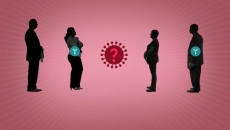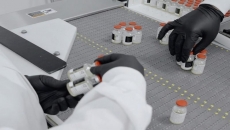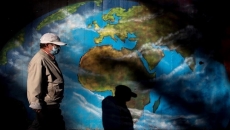More Americans now qualify for yearly scans to detect lung cancer, according to guidelines released Tuesday that may help more Black smokers and women get screened.
Lung cancer is the nation’s top cancer killer, causing more than 135,000 deaths each year. Smoking is the chief cause and quitting the best protection.
Usually, lung cancer is diagnosed too late for a good chance at survival. But some Americans who are at especially high risk get an annual low-dose CT scan, a type of X-ray, to improve those odds.
Who’s eligible? The U.S. Preventive Services Task Force said anyone between ages 50 and 80 who has smoked at least 20 “pack-years” and either still smokes or quit within the last 15 years. A “pack-year” means smoking a pack of cigarettes a day for a year or an equivalent amount. So someone could qualify by going through a pack a day for 20 years or two packs a day for 10 years.
Since 2013, the scans have been recommended for heavier smokers -- 30 pack-years -- and those a little older, starting at age 55. The task force updated the guidelines, published Tuesday in the Journal of the American Medical Association, after newer research showed lighter, younger smokers benefit, too. About 15 million people are estimated to meet the new criteria, nearly double the prior number.
The task force recommendation means insurers must offer the screening without a copay to people who meet the criteria.
The changes “mean more Black people and women are now eligible for lung cancer screening, which is a step in the right direction,” Dr. John B. Wong, a task force member at Tufts Medical Center, said in a statement.
The panel said African Americans and women tend to be less heavy smokers and may not have met the earlier screening threshold despite being at risk for lung cancer.
In an editorial in JAMA Surgery, cancer specialists welcomed the changes.
But "unfortunately, lowering the age and pack-year requirements alone does not guarantee increased equity in lung cancer screening,” wrote Dr. Yolonda Colson and colleagues at Massachusetts General Hospital.
Her team noted “formidable” barriers including poor access to health care and even doctors not familiar enough with the screening to identify good candidates and help them decide.
One recent study found just 14% of people eligible for lung cancer screening under the prior guidelines had actually gotten it. In contrast, 60% to 80% of people eligible for breast, colon or cervical cancer screening get checked.
People offered lung cancer screenings also must consider the risks of invasive testing to tell if any abnormality spotted by the scan really is a tumour. Lung biopsies occasionally cause serious, even fatal, complications.






